Discover the 3 dangerous symptoms of intestinal worms in birds every pet owner must recognize. Learn prevention, treatment, and expert care tips for your feathered friend.
Table of Contents
When your beloved feathered companion starts showing unusual behavior, it’s natural to worry. Among the various health concerns that can affect our avian friends, intestinal worms in birds represent one of the most serious yet often overlooked threats. These parasitic infections can silently compromise your bird’s health, making early detection absolutely crucial for their wellbeing.
As a responsible bird owner, understanding the warning signs of intestinal parasites could literally save your pet’s life. Unlike mammals, birds are masters at hiding illness—an evolutionary trait that once protected them from predators in the wild. This makes recognizing the subtle yet dangerous symptoms of intestinal worms in birds even more challenging and important.
In this comprehensive guide, we’ll explore the three most critical warning signs that should immediately prompt a visit to your avian veterinarian, along with everything you need to know about prevention, treatment, and long-term care for birds affected by intestinal parasites.
Understanding Intestinal Worms in Birds: The Hidden Threat
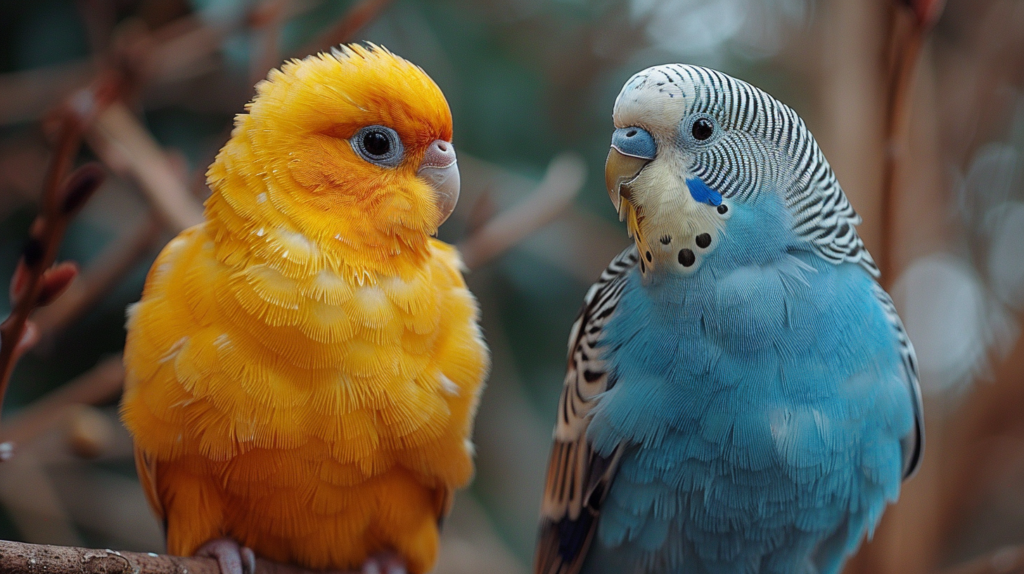
Intestinal worms in birds are parasitic organisms that take up residence in your pet’s digestive system, feeding off nutrients meant for your bird’s health and growth. These microscopic invaders can cause devastating health consequences if left untreated, yet they’re surprisingly common in both wild and domesticated birds.
The Most Common Types of Intestinal Parasites
Understanding the enemy is the first step in protecting your feathered friend. Here are the primary types of intestinal worms that affect birds:
Roundworms (Ascarids)
- Most common intestinal parasite in birds
- Can grow up to several centimeters in length
- Often transmitted through contaminated food or water
- Particularly dangerous for young birds and breeding females
Tapeworms (Cestodes)
- Segmented worms that can reach impressive lengths
- Require intermediate hosts like insects or rodents
- Can cause severe nutritional deficiencies
- Often difficult to detect without veterinary examination
Hookworms
- Smaller but more aggressive parasites
- Attach to intestinal walls and feed on blood
- Can cause severe anemia in infected birds
- More common in ground-dwelling species
Threadworms
- Microscopic parasites that are easily overlooked
- Can reproduce rapidly within the host
- Often cause chronic digestive issues
- Particularly prevalent in stressed or immunocompromised birds
How Birds Become Infected
The pathways to infection are numerous and often unavoidable in natural settings:
- Contaminated food and water sources
- Contact with infected bird droppings
- Consumption of infected insects or prey
- Exposure to contaminated soil or surfaces
- Transmission from parent birds to offspring
🔬 Diagnostic Timeline and Methods for Intestinal Worms
| Diagnostic Method | Time Required | Accuracy Level | Cost Range | Best For |
|---|---|---|---|---|
| Basic Fecal Examination | 1-2 hours | Moderate | $25-50 | Initial screening, quick results |
| Comprehensive Lab Testing | 2-3 days | High | $75-150 | Detailed parasite identification |
| Multiple Sample Analysis | 3-5 days | Very High | $100-200 | Most accurate diagnosis |
| PCR Testing | 3-7 days | Very High | $150-300 | Complex cases, rare parasites |
| Emergency Testing | 30 minutes | Moderate | $50-100 | Critical cases, immediate results |
The 3 Dangerous Symptoms Every Bird Owner Must Recognize
Symptom #1: Dramatic Changes in Appetite and Eating Behavior
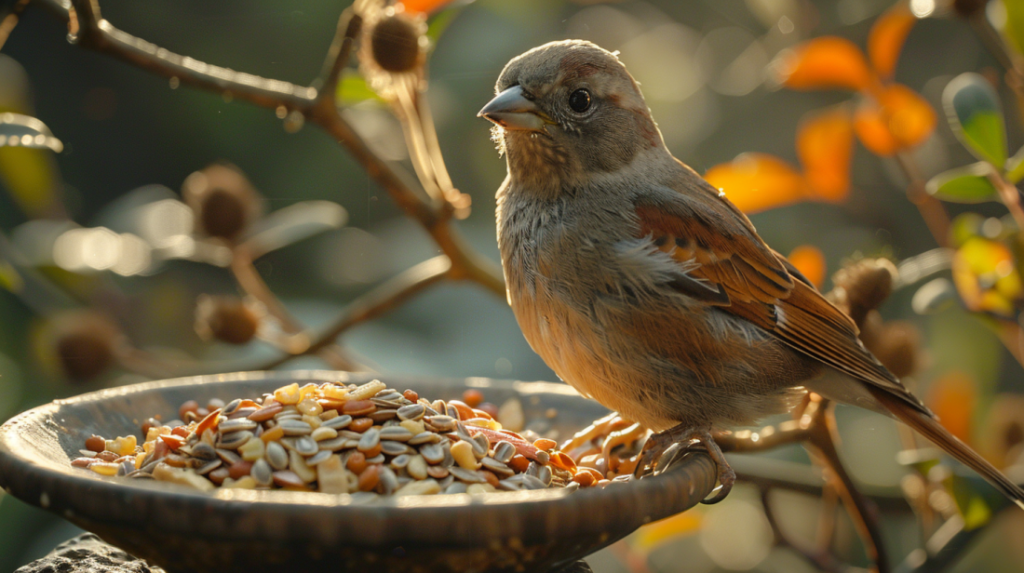
The first and often most noticeable sign of intestinal worms in birds manifests through significant changes in your pet’s eating habits. This symptom can present in two seemingly contradictory ways, making it particularly important to understand both variations.
Increased Appetite with Weight Loss One of the most alarming presentations occurs when birds develop an insatiable appetite yet continue to lose weight. This paradoxical symptom happens because intestinal parasites are literally stealing nutrients from your bird’s digestive system. The bird’s body recognizes the nutritional deficiency and triggers increased hunger signals, but no amount of food can compensate for the parasites’ theft.
Dr. Sarah Mitchell, an avian veterinarian with over 15 years of experience, explains: “I’ve seen cases where birds were eating twice their normal amount of food but still losing 10-15% of their body weight within a month. This is a classic sign of severe parasitic infection that requires immediate attention.”
Complete Loss of Appetite Conversely, some birds infected with intestinal worms will completely stop eating. This typically occurs when the parasitic load becomes so heavy that it causes significant digestive discomfort or when the bird becomes severely ill from the infection.
Warning Signs to Watch For:
- Sudden increase in food consumption without weight gain
- Visible weight loss despite normal or increased eating
- Complete refusal to eat favorite foods
- Frequent visits to food bowl but little actual consumption
- Regurgitation of recently consumed food
- Excessive seed scattering or food waste
Symptom #2: Abnormal Droppings and Digestive Distress
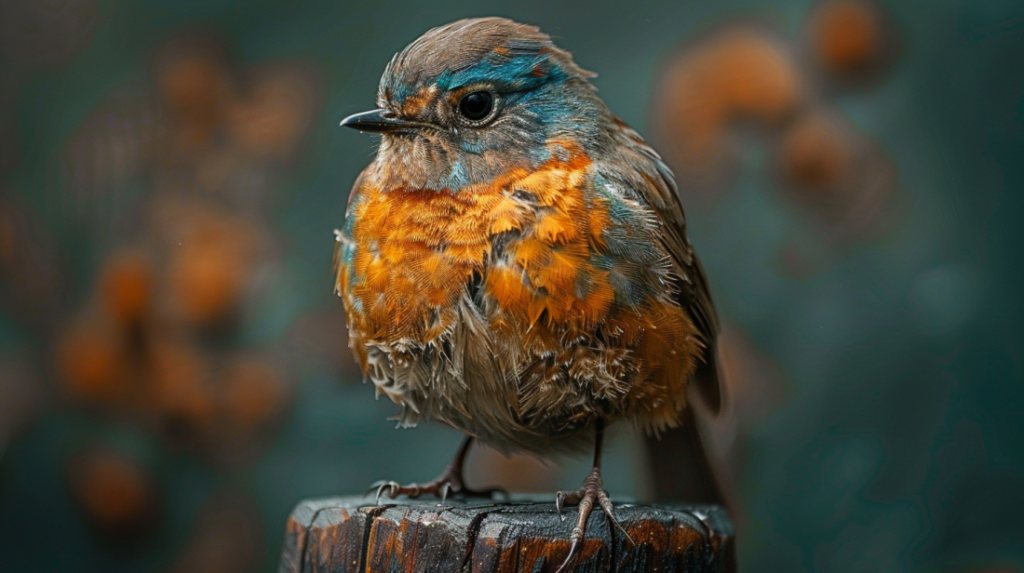
The second critical warning sign involves dramatic changes in your bird’s droppings—one of the most reliable indicators of avian health. Intestinal worms in birds cause distinctive changes in fecal consistency, color, and frequency that experienced bird owners learn to recognize quickly.
What Normal Bird Droppings Look Like Before identifying abnormal droppings, it’s essential to understand what healthy bird waste should contain:
- Fecal portion: Dark green or brown, well-formed
- Urates: White or cream-colored, chalky consistency
- Urine: Clear liquid component
Parasitic Infection Indicators When intestinal worms are present, you’ll notice several alarming changes:
Bloody or Dark Stools
- Blood in droppings indicates intestinal damage
- Dark, tarry stools suggest internal bleeding
- Particularly common with hookworm infections
Excessive Watery Diarrhea
- Chronic diarrhea lasting more than 24 hours
- Frequent, loose stools throughout the day
- Dehydration becomes a serious concern
Visible Worms or Worm Segments
- Actual worms visible in fresh droppings
- White, rice-like segments (tapeworm pieces)
- Thread-like organisms in watery stools
Unusual Odor
- Particularly foul-smelling droppings
- Sweet or unusual odors that persist
- Significant change from your bird’s normal scent
Symptom #3: Behavioral Changes and Physical Deterioration
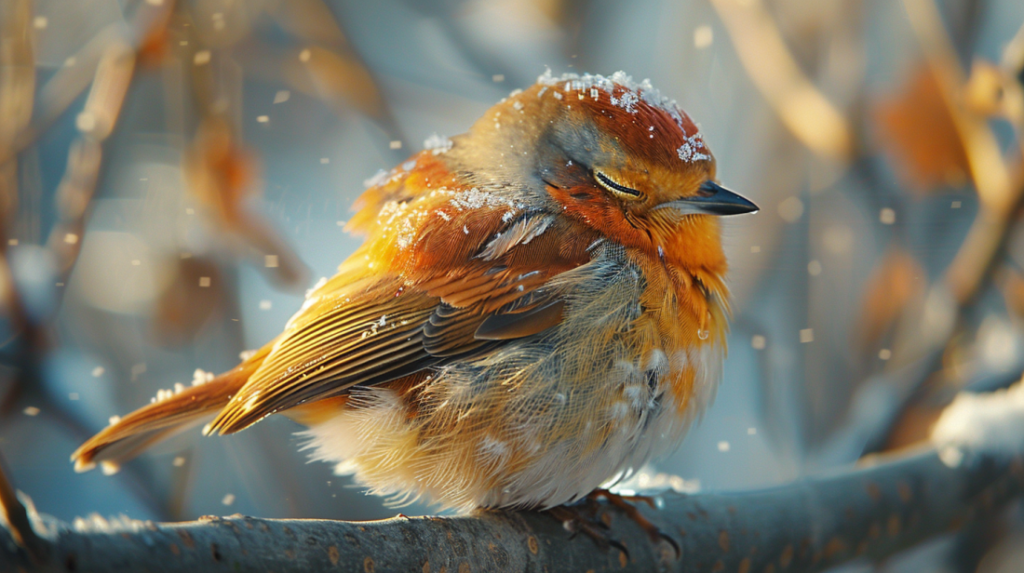
The third dangerous symptom encompasses the broader behavioral and physical changes that occur as intestinal worms in birds progress from mild to severe infection. These changes often develop gradually, making them easy to overlook until they become severe.
Energy Level and Activity Changes Infected birds typically show marked decreases in their normal activity levels:
- Lethargy and weakness: Birds that once flew actively around their cage may barely move
- Reduced vocalization: Normally chatty birds become unusually quiet
- Loss of playfulness: Decreased interest in toys and interactive activities
- Excessive sleeping: Spending more time resting than usual
Physical Appearance Deterioration Visual indicators of parasitic infection include:
- Feather quality decline: Dull, brittle, or missing feathers
- Visible weight loss: Prominent breastbone, sunken eyes
- Pale mucous membranes: Inside of mouth and eyes appear unusually pale
- Swollen abdomen: Distended belly area from parasitic inflammation
Neurological Symptoms In severe cases, intestinal worms in birds can cause neurological symptoms due to toxin buildup:
- Loss of coordination: Difficulty perching or maintaining balance
- Head tilting: Unusual head positioning
- Seizures: In extreme cases, parasitic toxins can trigger seizures
- Disorientation: Confusion about familiar surroundings
The Science Behind Intestinal Parasites in Birds

Understanding the biological mechanisms behind parasitic infections helps bird owners appreciate why these symptoms develop and why immediate treatment is so crucial.
How Parasites Affect Bird Physiology
Nutritional Competition Intestinal worms compete directly with your bird for essential nutrients. A study published in the Journal of Avian Medicine and Surgery found that birds with moderate parasitic infections absorbed 30-40% fewer vitamins and minerals from their food compared to healthy birds.
Intestinal Damage Different parasites cause varying degrees of physical damage to the digestive system:
- Hookworms attach to intestinal walls, causing bleeding and ulceration
- Roundworms can cause mechanical blockages in severe infections
- Tapeworms damage the intestinal lining, reducing nutrient absorption
Immune System Compromise Chronic parasitic infections significantly weaken the bird’s immune system, making them susceptible to secondary infections and diseases that healthy birds would easily resist.
📊 Testing Frequency and Risk Assessment Guide
| Bird Category | Testing Frequency | Risk Level | Special Considerations | Prevention Tips |
|---|---|---|---|---|
| Healthy Indoor Birds | Annual | Low | Routine wellness check, baseline testing | Clean environment, quality diet |
| Multi-bird Households | Every 6 months | Medium | Cross-contamination risk, quarantine new birds | Separate feeding areas, individual care |
| Outdoor Access Birds | Every 6 months | High | Environmental exposure, wild bird contact | Supervised outdoor time, secure enclosures |
| Previously Infected Birds | Every 3-4 months | High | Reinfection monitoring, treatment follow-up | Enhanced hygiene, stress reduction |
| Breeding Birds | Before breeding season | Medium | Ensure healthy breeding, protect offspring | Pre-breeding health check, clean nesting |
| Rescue/Adopted Birds | Immediately + 30 days | High | Unknown health history, potential exposure | Quarantine period, comprehensive health exam |
Risk Factors and Prevention Strategies
High-Risk Situations
Certain circumstances significantly increase the likelihood of intestinal worms in birds:
Environmental Factors
- Overcrowded living conditions: Multiple birds in small spaces
- Poor sanitation: Infrequent cage cleaning and maintenance
- Outdoor exposure: Access to areas with wild bird droppings
- Contaminated food sources: Bulk seed storage in inappropriate conditions
Bird-Specific Risk Factors
- Age: Young birds and elderly birds are more susceptible
- Breeding status: Breeding birds have compromised immune systems
- Stress levels: Recently relocated or traumatized birds
- Pre-existing health conditions: Birds with other illnesses
Comprehensive Prevention Protocol
Daily Hygiene Practices
- Remove uneaten food within 4-6 hours
- Clean and refill water containers daily
- Spot-clean cage bottom daily
- Wash hands thoroughly before and after bird handling
Weekly Deep Cleaning
- Disinfect entire cage with bird-safe cleaners
- Replace all perches and toys
- Thoroughly clean food and water containers
- Inspect and clean surrounding areas
Monthly Health Monitoring
- Weigh your bird weekly and track changes
- Document any changes in behavior or appearance
- Schedule regular veterinary check-ups
- Maintain detailed health records
Treatment Options and Veterinary Care
Professional Diagnosis
When you suspect intestinal worms in birds, immediate veterinary attention is essential. Avian veterinarians use several diagnostic methods:
Fecal Examination
- Fresh fecal samples examined under microscope
- Identification of eggs, larvae, or adult worms
- Multiple samples may be needed for accurate diagnosis
Blood Tests
- Complete blood count to assess overall health
- Protein levels to evaluate nutritional status
- Liver function tests if toxicity is suspected
Physical Examination
- Palpation of abdomen for swelling or masses
- Assessment of body condition and weight
- Evaluation of feather quality and skin condition
Treatment Protocols
Antiparasitic Medications Treatment varies depending on the specific parasite identified:
- Fenbendazole: Effective against roundworms and some tapeworms
- Ivermectin: Used for various parasites but requires careful dosing
- Praziquantel: Specifically targets tapeworms
- Levamisole: Effective against roundworms and hookworms
Supportive Care
- Fluid therapy: To combat dehydration
- Nutritional support: High-quality, easily digestible foods
- Probiotic supplementation: To restore healthy gut bacteria
- Vitamin and mineral supplementation: To address deficiencies
Follow-up Care
- Repeat fecal examinations to confirm treatment success
- Gradual reintroduction of normal diet
- Ongoing monitoring for symptom recurrence
- Environmental decontamination
Long-term Management and Recovery
Recovery Timeline
The recovery process from intestinal worms in birds varies significantly based on several factors:
Mild Infections (1-2 weeks treatment)
- Symptoms typically resolve within 3-5 days
- Full recovery expected within 2-3 weeks
- Minimal long-term health effects
Moderate Infections (2-4 weeks treatment)
- Initial improvement within 5-7 days
- Complete recovery may take 4-8 weeks
- Potential for minor lasting effects
Severe Infections (4+ weeks treatment)
- Gradual improvement over 2-3 weeks
- Full recovery can take 2-4 months
- Risk of permanent organ damage
Creating a Recovery Environment
Optimal Cage Setup
- Maintain temperature between 75-80°F (24-27°C)
- Provide multiple perches at varying heights
- Ensure easy access to food and water
- Minimize stress from noise and activity
Nutritional Recovery Plan
- High-quality pellets as primary food source
- Fresh fruits and vegetables for vitamins
- Probiotics to restore digestive health
- Adequate protein for tissue repair
⚕️ Symptoms and Damage Assessment Guide
| Symptom Category | Early Signs | Advanced Signs | Potential Damage | Action Required |
|---|---|---|---|---|
| Digestive System | • Loose droppings • Slight appetite changes • Mild discomfort |
• Visible worms in droppings • Bloody stool • Severe diarrhea |
Intestinal inflammation Monitor closely |
Veterinary exam within 48 hours |
| Physical Condition | • Gradual weight loss • Slightly reduced activity • Duller feathers |
• Severe weight loss • Visible weakness • Feather plucking |
Muscle wasting Urgent care needed |
Immediate veterinary attention |
| Behavioral Changes | • Increased appetite • Restlessness • Mild irritability |
• Extreme lethargy • Loss of appetite • Social withdrawal |
Stress-related Monitor behavior |
Schedule vet visit, reduce stress |
| Reproductive System | • Irregular laying • Smaller eggs • Reduced fertility |
• Complete breeding failure • Egg binding risk • Hormonal disruption |
Reproductive damage Critical intervention |
Emergency veterinary care |
| Immune System | • Frequent minor illnesses • Slow wound healing • Increased stress |
• Severe secondary infections • Complete immune failure • Multiple organ stress |
Organ damage Life-threatening |
Emergency treatment required |
Special Considerations for Different Bird Species
Canaries and Finches
These small songbirds are particularly susceptible to intestinal worms in birds due to their high metabolism and delicate digestive systems.
Species-Specific Symptoms
- Rapid weight loss is more pronounced
- Feather plucking may increase
- Singing behavior changes dramatically
- Higher mortality rate if untreated
Treatment Considerations
- Medications must be precisely dosed due to small size
- Frequent monitoring required during treatment
- Isolation from other birds is crucial
- Recovery period may be extended
Parrots and Cockatiels
Larger birds often hide symptoms longer, making early detection more challenging.
Behavioral Indicators
- Changes in vocalization patterns
- Reduced social interaction
- Altered grooming habits
- Decreased curiosity and exploration
Treatment Advantages
- Better tolerance for medications
- Easier to monitor during recovery
- More resilient to treatment stress
- Faster recovery with proper care
Budgerigars (Budgies)
These popular pet birds have unique considerations regarding intestinal worms in birds.
Common Presentations
- Seed scattering increases dramatically
- Perching preferences change
- Night frights may increase
- Molting patterns can be affected
Management Strategies
- Quarantine is essential in multi-bird households
- Medication compliance is generally good
- Environmental enrichment during recovery
- Careful monitoring of flock dynamics
The Role of Diet in Prevention and Recovery
Nutritional Foundations
Proper nutrition serves as the first line of defense against intestinal worms in birds and plays a crucial role in recovery.
Essential Nutrients for Immune Function
- Vitamin A: Critical for intestinal lining health
- Vitamin E: Powerful antioxidant protection
- Zinc: Essential for wound healing
- Protein: Building blocks for tissue repair
Foods to Emphasize
- High-quality commercial pellets (80% of diet)
- Fresh dark leafy greens (kale, spinach, broccoli)
- Orange vegetables (carrots, sweet potatoes)
- Limited healthy seeds and nuts
Foods to Avoid
- Avocado (toxic to birds)
- Chocolate and caffeine
- High-fat seeds in excess
- Processed human foods
Feeding Strategies During Recovery
Appetite Stimulation Techniques
- Warm foods to enhance aroma
- Hand-feeding for bonding and monitoring
- Multiple small meals throughout the day
- Favorite foods to encourage eating
Hydration Management
- Fresh water available at all times
- Consider electrolyte solutions if recommended
- Monitor water consumption closely
- Clean water containers daily
Environmental Management and Biosecurity
Cage and Aviary Hygiene
Maintaining a clean environment is crucial for preventing intestinal worms in birds and supporting recovery.
Daily Cleaning Protocol
- Remove all uneaten food within 4-6 hours
- Spot-clean visible droppings immediately
- Refresh water containers completely
- Wipe down perches and feeding areas
- Check for any signs of illness
Weekly Deep Cleaning
- Remove bird to temporary, safe location
- Disassemble cage completely
- Wash all components with bird-safe disinfectant
- Allow complete drying before reassembly
- Replace substrate and bedding materials
Monthly Maintenance
- Inspect cage for wear and damage
- Replace worn perches and toys
- Deep clean surrounding floor and walls
- Assess and improve ventilation
- Document any environmental changes
Multi-Bird Household Management
Quarantine Protocols
- Isolate new birds for minimum 30 days
- Separate sick birds immediately
- Use dedicated cleaning supplies for each bird
- Maintain detailed health records
Flock Health Monitoring
- Observe all birds daily for symptoms
- Coordinate veterinary check-ups
- Implement synchronized treatment when necessary
- Maintain adequate spacing between cages
When to Seek Emergency Veterinary Care
Critical Warning Signs
Some symptoms of intestinal worms in birds require immediate emergency intervention:
Immediate Emergency Indicators
- Seizures or neurological symptoms
- Severe breathing difficulties
- Complete refusal to eat for 24+ hours
- Visible worms in large quantities
- Collapse or inability to perch
Urgent But Not Immediate
- Blood in droppings
- Significant weight loss (>10% body weight)
- Persistent vomiting or regurgitation
- Lethargy lasting more than 48 hours
- Dramatic behavioral changes
Finding Qualified Avian Veterinary Care
Veterinarian Selection Criteria
- Board certification in avian medicine
- Experience treating exotic birds
- Availability for emergency consultations
- Modern diagnostic equipment
- Positive references from bird owners
Preparing for Veterinary Visits
- Collect recent fecal samples
- Document symptoms with dates and times
- Prepare list of current medications
- Bring recent dietary and environmental changes
- Have emergency contact information ready
Cost Considerations and Insurance
Treatment Cost Breakdown
Understanding the financial aspects of treating intestinal worms in birds helps owners prepare for necessary care.
Initial Diagnostic Costs
- Veterinary examination: $75-150
- Fecal examination: $25-50
- Blood tests: $100-200
- Additional diagnostics: $50-100
Treatment Expenses
- Medications: $20-100
- Follow-up visits: $50-100 each
- Supportive care: $30-75
- Environmental decontamination: $25-50
Total Treatment Range: $300-675 for typical cases
Severe Cases: $500-1,200+ including hospitalization
Pet Insurance Considerations
Coverage Options
- Accident and illness policies
- Wellness plan additions
- Exotic pet specialized coverage
- Pre-existing condition limitations
Cost-Benefit Analysis
- Monthly premiums: $10-30
- Annual deductibles: $100-500
- Coverage percentages: 70-90%
- Lifetime or annual limits
For more expert pet care tips and product recommendations, visit BlithePet.com — your trusted source for pet wellness.
Frequently Asked Questions
How long does it take to diagnose intestinal worms in birds?
Diagnosis typically takes 1-3 days, depending on the diagnostic methods used. A basic fecal examination can provide results within hours, while more comprehensive testing may require sending samples to specialized laboratories. Multiple fecal samples collected over several days often provide the most accurate diagnosis.
Can intestinal worms be transmitted from birds to humans?
Most intestinal worms in birds are species-specific and cannot infect humans. However, some parasites like certain roundworms can potentially be transmitted through direct contact with infected bird droppings. Always wash hands thoroughly after handling birds or cleaning cages, and maintain good hygiene practices.
Are there natural remedies for treating intestinal worms in birds?
While some natural supplements may support overall health, intestinal worms in birds require professional veterinary treatment with proven antiparasitic medications. Natural remedies alone are insufficient for eliminating parasitic infections and may delay necessary treatment, potentially resulting in serious health complications or death.
How often should I have my bird tested for intestinal parasites?
Healthy birds should have annual fecal examinations as part of routine veterinary care. Birds with previous infections, those in multi-bird households, or those with outdoor access should be tested every 6 months. Any bird showing symptoms should be tested immediately, regardless of previous test results.
Can intestinal worms cause permanent damage to my bird?
Early detection and treatment of intestinal worms in birds typically results in full recovery with no lasting effects. However, severe or chronic infections can cause permanent damage to the digestive system, liver, or other organs. This emphasizes the importance of recognizing symptoms early and seeking immediate veterinary care.
What’s the difference between worms and other digestive problems in birds?
Parasitic infections often cause specific symptoms like visible worms in droppings, characteristic changes in fecal consistency, and the combination of increased appetite with weight loss. Other digestive problems may cause similar symptoms but typically lack the specific indicators of parasitic infection. Professional veterinary diagnosis is essential for accurate identification.
Conclusion
Recognizing the three dangerous symptoms of intestinal worms in birds—dramatic appetite changes, abnormal droppings, and behavioral deterioration—can literally save your feathered friend’s life. These warning signs represent your bird’s desperate attempt to communicate a serious health crisis that requires immediate attention.
The key to successful treatment lies in early detection and prompt veterinary intervention. Remember that birds instinctively hide illness, making your careful observation and quick response crucial for their survival. By maintaining proper hygiene, providing excellent nutrition, and staying vigilant for symptoms, you can protect your beloved pet from these dangerous parasites.
Don’t wait for symptoms to worsen or hope they’ll resolve on their own. Intestinal worms in birds are a serious medical condition that requires professional treatment. Your bird’s life may depend on your ability to recognize these warning signs and take immediate action.
Have a similar experience with your pet? Share it in the comments below!

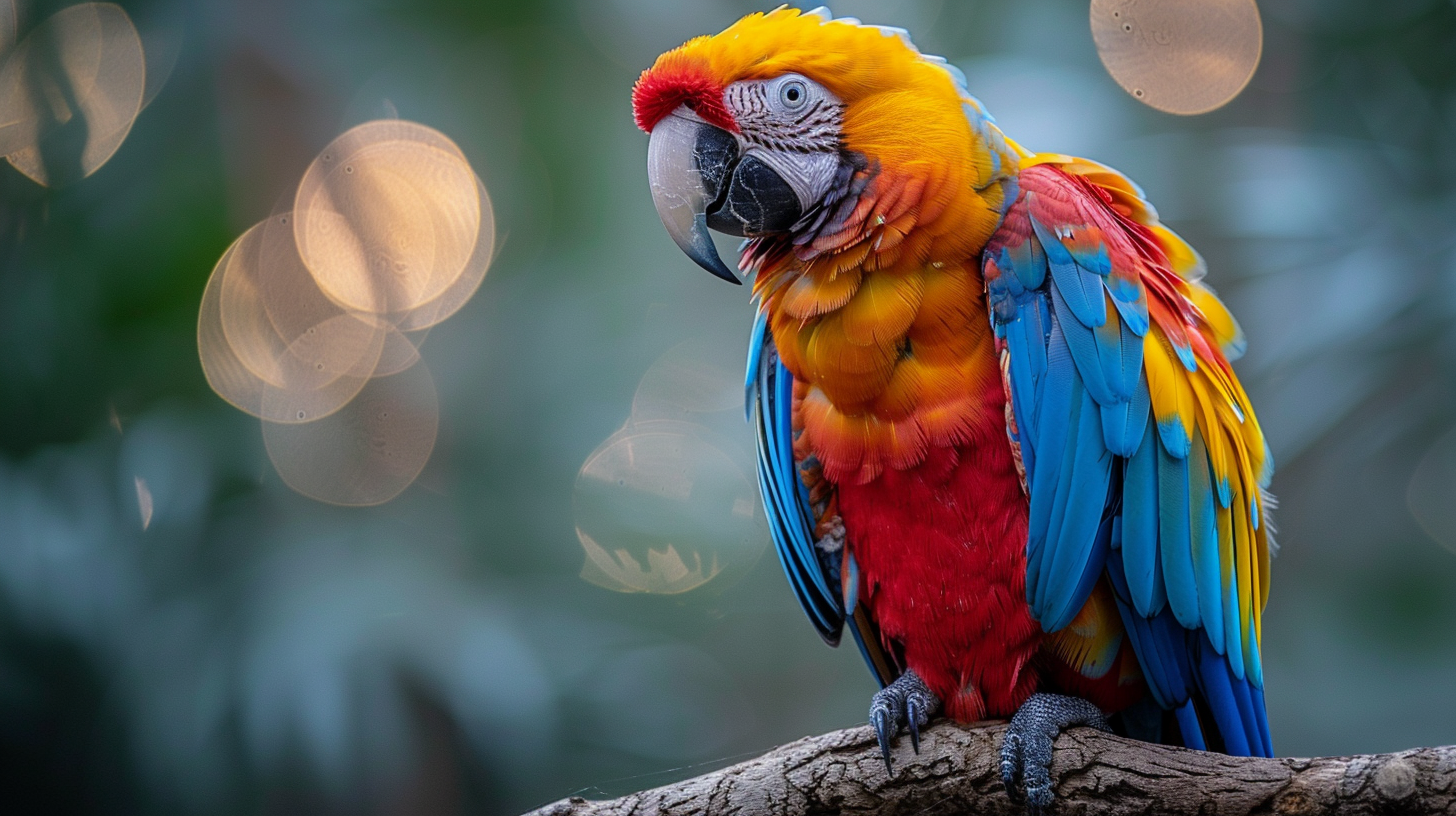
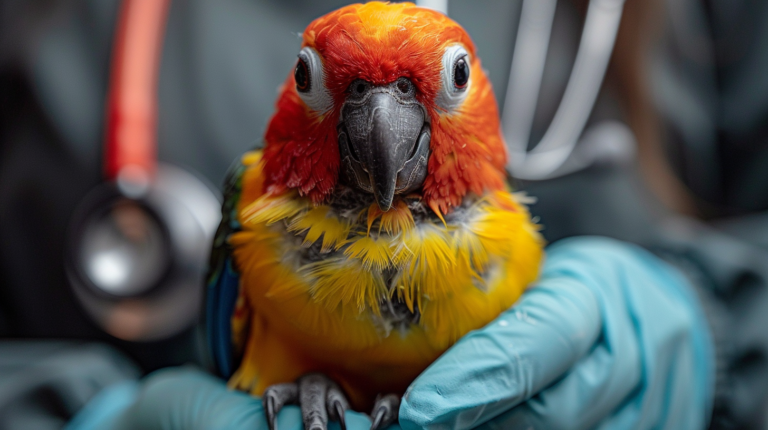
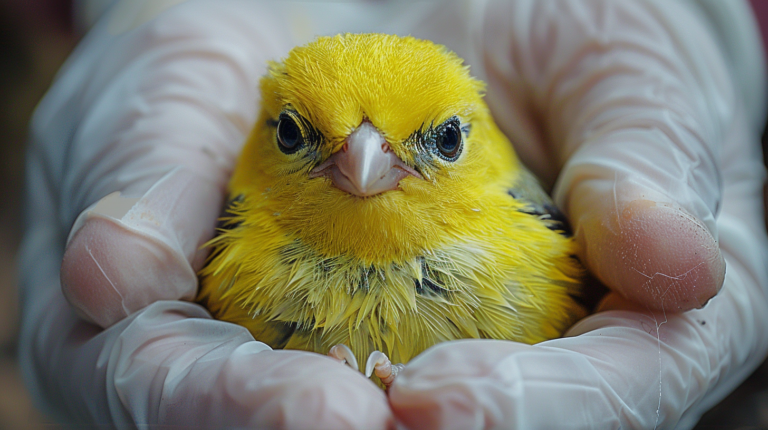
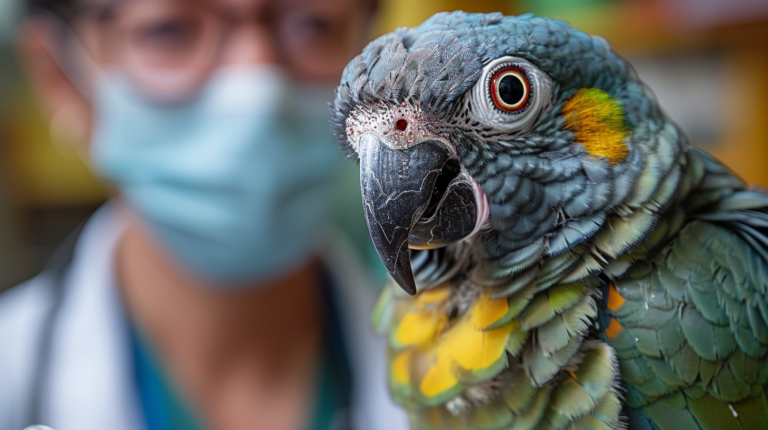
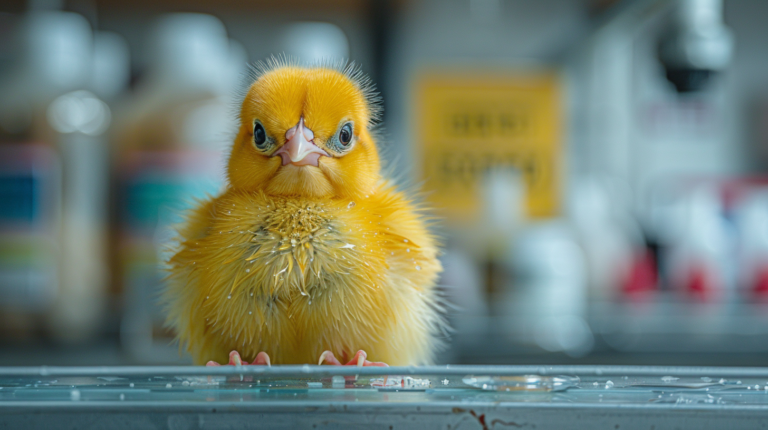
Leave a Reply